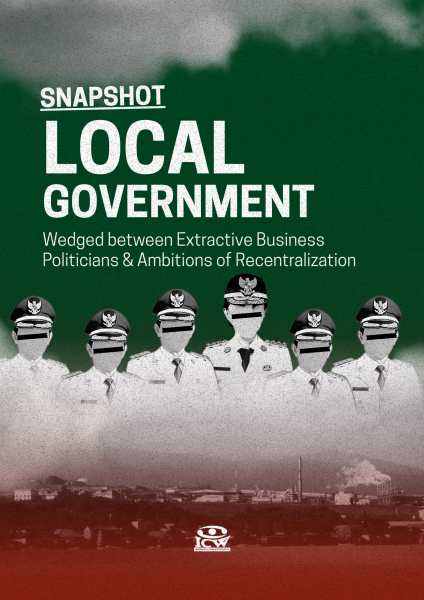Local Government Snapshot

In its development, the global demand to seriously respond to the climate crisis is unlikely to be met by the central government. The latest trends that have emerged actually point to a direction in policy and legislation that is contrary to a number of climate action commitment ambitions. At the same time, the Prabowo Subianto administration appears to prioritise a governance model that disregards the mandate of decentralisation and instead employs a centralist approach to ensure the success of the Palace's priority programs, such as "downstreaming" in the energy sector.
Through open-source research conducted from September 7, 2024, to May 7, 2025, across 37 provinces in Indonesia (with random sampling in 8 districts/cities), this report found that out of 582 individuals who are candidates for regional heads and deputy regional heads (at the provincial and district/city levels), 45 candidates were identified as having affiliations with the extractive industry. Meanwhile, out of 74 individuals who are current regional heads and deputy regional heads at the provincial level, 32 individuals were found to be affiliated with businesses, with the following distribution: five individuals were indicated as being affiliated with coal mining; four individuals were indicated as being affiliated with nickel mining; one individual was affiliated with other types of mining; three individuals were affiliated with the oil and gas industry; three individuals were affiliated with the plantation industry; and the remaining 16 individuals were affiliated with non-extractive businesses.
This report maps the future vulnerabilities of local government governance in the face of shrinking local autonomy due to recentralization, as well as the potential for conflicts of interest arising from the prevalence of politician-businessmen in the extractive sector who lead resource-rich regions.










